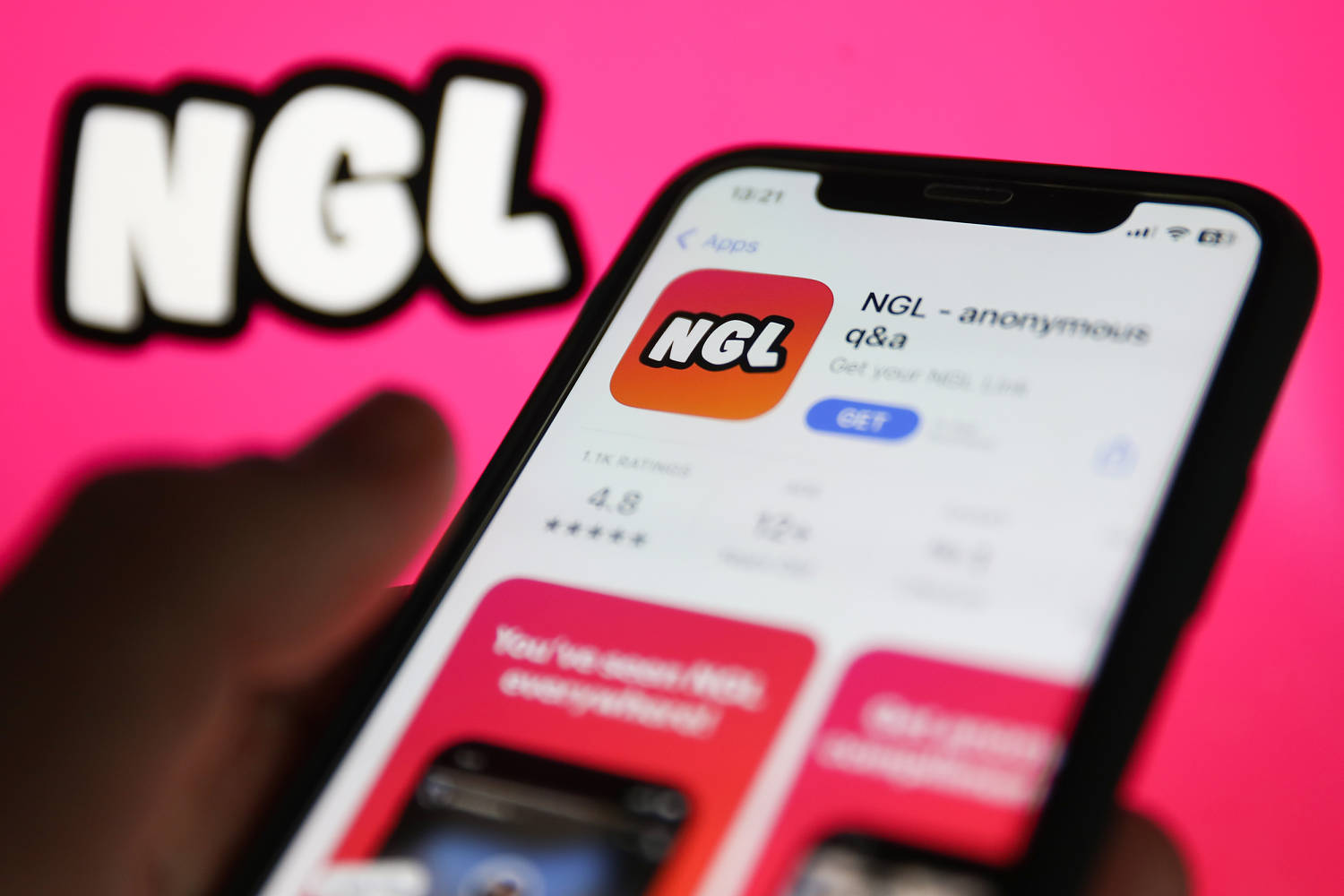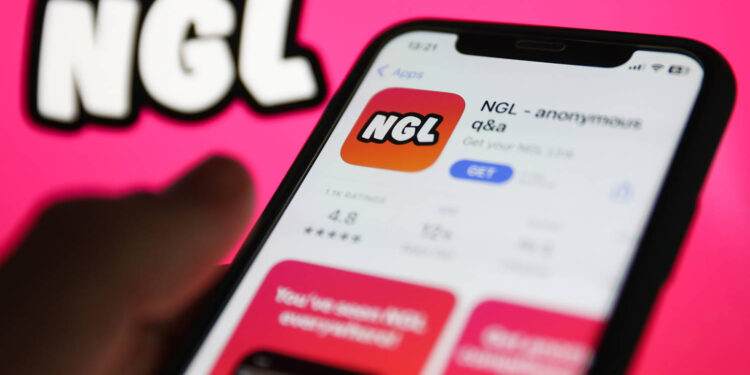The Federal Trade Commission has banned the anonymous messaging app NGL from hosting users under 18, the first time the agency has ordered a digital platform to stop serving minors.
The decision came after the FTC and the Los Angeles District Attorney’s office alleged in a lawsuit that the app unfairly marketed to kids and falsely claimed that its AI-powered content moderation system prevented cyberbullying. It also accused the app of engaging in deceptive business practices when marketing its premium subscription plan, NGL Pro.
NGL Labs, which owns NGL, and app co-founders Raj Vir and Joao Figueiredo, settled the lawsuit on Tuesday, according to a press release from the FTC and the DA’s office. In addition to implementing an age restriction, the company and its founders will pay $5 million as part of the settlement.
“After nearly two years of cooperating with the FTC’s investigation, we view this resolution as an opportunity to make NGL better than ever for our users and we think the agreement is in our best interest,” said Figueiredo in an email statement to NBC News. “While we believe many of the allegations around the youth of our user base are factually incorrect, we anticipate that the agreed upon age-gating and other procedures will now provide direction for others in our space, and hopefully improve policies generally.”
The California-based messaging app, the name of which riffs off the term “not gonna lie,” launched in 2021. It touted itself as “a fresh take on anonymity,” allowing users to post questions on their social media platforms that would prompt followers to respond anonymously.
It quickly became popular among teens and claimed to be a “safe space” for them. However, NBC News previously reported that slurs and harassing language were able to surpass the app’s language filters.
“NGL marketed its app to kids and teens despite knowing that it was exposing them to cyberbullying and harassment,” FTC Chair Lina M. Khan said in a press release.
The FTC and Los Angeles DA’s complaint also claimed that NGL violated the Children’s Online Privacy Protection Act (COPPA), which requires companies serving kids under 13 to disclose what personal information is being collected and receive verified parental consent.
Los Angeles DA George Gascón said that the charges against NGL “send a clear message that deceptive practices and targeting vulnerable populations will not be tolerated.”
“We cannot tolerate such behavior, nor can we allow companies to profit at the expense of our children’s safety and well-being,” Gascón said in a press release.
According to the complaint, NGL allegedly deceived users by sending fake messages and questions to drive engagement. The FTC and Los Angeles DA found that numerous consumers found the fake messages “harassing.”
The complaint further alleged that NGL prompted users to subscribe to NGL Pro in order to reveal the identities of anonymous message senders, even if the messages were fake. NGL Pro also did not reveal the exact identities of senders; rather it sent “hints” about them including their phone model and approximate location, according to the lawsuit.
The FTC and the Los Angeles DA called this a “bait-and-switch tactic.” They also said many consumers were unaware that NGL Pro, which cost up to $9.99 per week, was a recurring weekly charge, which violates the Restore Online Shoppers’ Confidence Act (ROSCA). ROSCA requires companies to disclose the terms of a transaction and obtain users’ informed consent for charges.
According to a press release, the $4.5 million of the settlement will be used to provide redress to consumers. Meanwhile, $500,000 will be paid as a civil penalty to the Los Angeles DA’s office.








